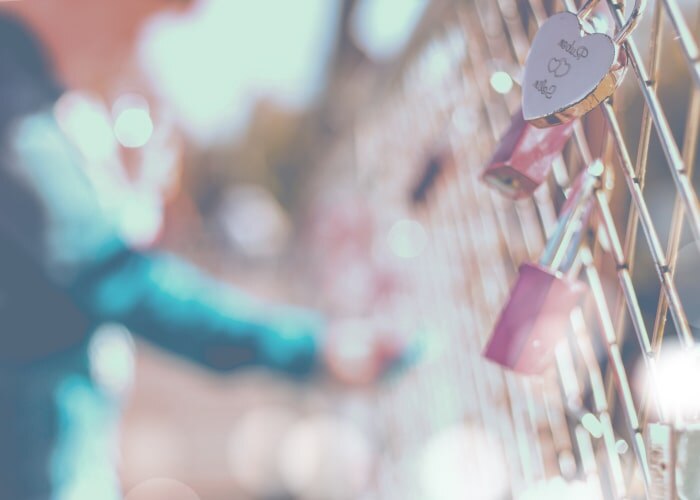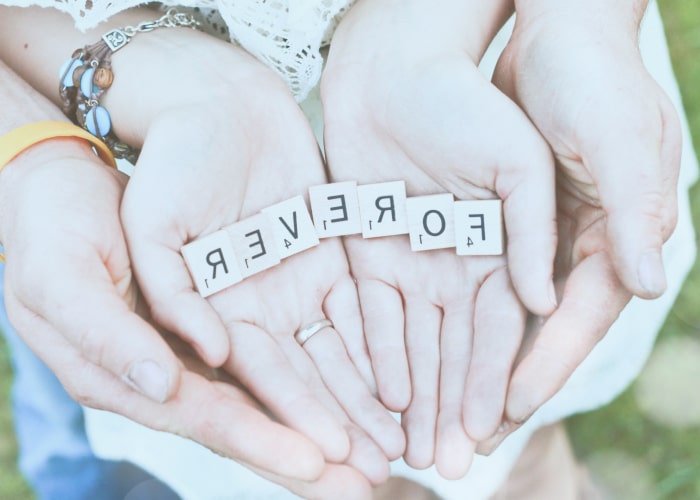
What is Attachment? Attachment Theory and its Role in Relationships
Attachment Theory is a topic that is thrown around often in the circles of professional psychologists. It’s a theory to describe the way that people connect with others in the world. The theory seeks to answer the question, what is attachment? Furthermore, it seeks to apply its ideas to a variety of formats from the relationships that someone forms with their parents as a child to the sort of relationships that they have as an adult.
It is crucial to note that there are distinct differences between the adult model and the children’s model of attachment. Different terms are used to describe these relationships. While the children’s model is centered on the way the caregiver and child interact, the adult model interprets adult romantic relationships.
Moreover, this attachment style psychology is determined to be a tool for establishing the future relationships that a person develops. When an individual understands their attachment style and role in a relationship, they can use that knowledge to get a better outcome. According to the theory, there are four different styles of attachment that a person can form. These include one secure type and three insecure types such as:
- Secure Attachment Style
- Anxious Attachment Style
- Avoidant Attachment Style
- Anxious-Avoidant Attachment Style
Of the four, only the first one is healthy, and we’re going to explore why that is the case.

It’s important to understand the applications of this theory in people’s lives. Not only is this theory rooted in the relationships that people have as children, but it’s clear that the effects last long into adulthood. Furthermore, it’s significant for people to realize that all the evidence available suggests that these attachment styles can change throughout the course of your life. Thus, if you are trapped in a negative attachment style, then the chances are good that you can work through your mental issues and develop into a better person. These different attachment styles don’t have to define your entire life!
The Different Types of Attachment Styles
Defining the psychological hallmarks of the attachment styles is very important to understand them. As previously mentioned, the different types of attachment styles are as follows:
- Secure Attachment Style
- Anxious Attachment Style
- Avoidant Attachment Style
- Anxious-Avoidant Attachment Style
Moreover, we’ve said that the healthiest form of attachment style is the Secure style and the least healthy is the Anxious-Avoidant. Why is that the case? What is a secure attachment? We’re going to break down each attachment style according to the theory to let you know what it is and perhaps how a person could have developed in this particular way.

The Secure Attachment Style is healthy. It is recognizable when a person is capable of being in a relationship and being independent. They don’t feel compelled to need a person in their life, but they won’t shy away from a relationship. These are well-adjusted people. They know and accept their strengths and weaknesses, and they are more likely to work on their faults to become a better partner. These are individuals that can make real distinctions in terms of relationship health. They have the capability of setting proper boundaries in their lives and ensuring that they give enough time to every aspect of their lives instead of just their romance. An important part of their relationship style stems from the fact that they are able to face rejection and move on. That means they’re likely to seek out partners even when there is a potential that they will not be able to secure a relationship with them.
This kind of attachment develops when a child is nurtured and supported, giving them confidence and the ability to understand the nature of relationships. They do not pin all their hopes for love and affection on a single person.
The Anxious Attachment Style or Anxious-Preoccupied Attachment Style is another important form to examine. As the name suggests, these individuals need a lot of love and support. They’re constantly worried about the state of their relationship and they feel a strong desire to be with someone, even if it’s not a good match. These individuals are regularly manipulated into being in a relationship that is unhealthy or downright abusive. They will check on their partners frequently, be jealous of their friends, and feature emotional outbursts.
These attachments form when they idolize relationships but receive unpredictable care and support.

The Avoidant Attachment Style, also known as Dismissive, is a form of attachment where it almost seems as though a person does not want a relationship at all. They’re very self-centered and they’re not entirely comfortable with opening up to someone. These people are known for avoiding commitments in a relationship as well. They will work hard to ensure that they are in control of the amount of intimacy they share with someone as well as the frequency with which they exercise that intimacy. Moreover, they don’t view close relationships as something that they truly need. They’re more likely to hide their true feelings. Also, they will take rejection well at first, but then they will avoid the actions that got them rejected in the first place.
These individuals get this attachment type when they have many of their needs met, but their emotional needs are neglected. They have high self-esteem, but they don’t see the value of others as much. They simply want to live and work on their own, but they have some desires for intimacy with other people.
The Anxious-Avoidant Attachment Style, also called the Fearful or Unresolved type, happens when people have an unstable view of themselves and other people. These individuals don’t put a lot of stock into emotional relationships, and they have the downside of doing whatever they can to push others away from them. Also, they are usually dealing with many other mental health issues in their lives. These individuals are often the product of abuse, so it’s clear that they require help. However, it is important to remember that as their romantic partner, it is not up to you to try to fix them.
These individuals tend to come from abusive childhoods and suffer from negligence. Not only can they not trust their caregivers, but they also have a negative evaluation of their own self-worth.

With all these ideas in mind, it’s easy to place yourself in one category or another. Since research shows that roughly half of people have the Secure Attachment Style, many others are struggling with aspects of the other kinds. How can you tell the difference though?
How Do You Know Which Attachment Style You Are?
Now that you know the different kinds of attachment styles, you have to try to find out which one is innate in you. This will impact your love style, the way you view people, and the types of relationships that you can have.
So, how do you know what kind of person you are? What is your attachment style? There are generally two different ways to find out your personal style. For one thing, you can take time to have a psychologist evaluate your relationship. This often helps if you include a romantic partner in the event. They will have the opportunity to weigh in on your actions from a new perspective. This can take some time and it will likely be expensive.
However, the psychology specialists around the world have also made a questionnaire that you can take and determine the sort of attachment style you have. The only problem that you have with this form of questionnaire is the fact that you have to be completely honest about your answers to the questions. It is difficult for a person to be open, honest, and completely transparent about their own mental state.
All in all, finding your attachment style is most effectively done with the help of a psychologist. However, you can get an idea of your attachment style by taking an assessment. So, if you want to ask, “what is my attachment style?”, you have some options.

Relationship Advice Specific to Your Attachment Style
With all the different kinds of attachment styles, you will need to keep certain things in mind to maintain a healthy relationship. The first thing that you should do is learn more about your attachment style. While the Secure Attachment Style is ideal, not everyone falls into that category. You should be willing to learn about your specific attachment style and then work to ensure that you’re bettering yourself.
- Secure Attachment Style: if you have a partner with this attachment style, then you’re in the clear. You should always try to meet someone that has this security in their life. However, you have about a 50% chance of dating one, so learn about the others, too.
- Anxious Attachment Style: if you’re anxious about dating and you feel the desire to push people away, let your dates know. Tell them that they can’t smother you and that you would prefer to have some patience in your relationship. While you have individuals that are not up for taking things slowly, others will work with you through the relationship to give yourself a better shot at becoming secure. Remember, you can always change for the better!
- Avoidant Attachment Style: individuals that deal with the avoidant style should make an effort to be around more people. They need to interact with them and see the benefit of their company. More often than not, they’ll have to be the one to take an interest in a person and then voice that interest to make the relationship a healthy one. Yet, when they do meet someone that is truly intriguing and want to spend time together, they can get a great benefit from the experience.
- Anxious-Avoidant Attachment Style: these people are afraid of abandonment. If you’re going to date as one of them, then you should spend time slowly building your relationship to ensure that it has the strength that you need to get throughout everything. Otherwise, you’ll be stuck on a rollercoaster of emotion where you simultaneously want and your partner when they are distant and then you’ll be distant when they’re clingy towards you. It’s a recipe for disaster, and it’s best fixed by going through some kind of therapy.
As you can see, there are various approaches to getting the proper outcomes for your relationship depending on your attachment style. With that being said, it’s important to recognize your shortcomings and work on them before accidentally sabotaging a relationship!
How to Date Someone with Insecure Attachment?
When considering future relationships, you must think about how to deal with some of the harder types of attachment shortcomings. Building a relationship with someone that has an insecure attachment style is difficult. It is still possible that the two of you can be happy. You can date them by taking time to talk to each other very often about the kinds of feelings you have toward the relationship. If you’re anxious and worried about them not messaging you back right away, talk with them to get through the issue. If you are not able to get through to your insecure partner, then it’s a good idea to seek therapy or end the relationship if it’s not healthy enough for you both.

The different kinds of relationships that people have been in throughout their lives have most likely included someone with an insecure attachment style. That doesn’t necessarily mean that the relationship was bad, only that their partner needed extra support to make it work. With this knowledge, you can determine your own attachment style and work on becoming a better romantic partner. Now that you know what each style is and how you were likely to form that style, you should be better prepared to have adult relationships of every kind!